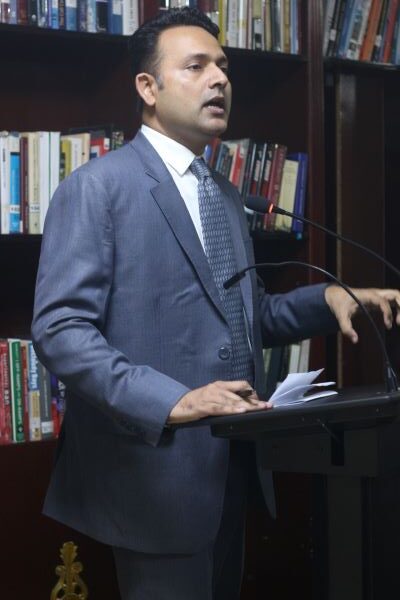President’s Message

The Consortium for Asia Pacific Studies (CAPS) in Pakistan is established to realign academic and policy discourse with the shifting dynamics of global power. A transition which is characterized by the shift of global center of gravity from West to the East. Yet, Pakistan’s foreign policy and academic discourse in international relations have not corresponded to this tectonic transformation. Despite a multitude of statements on the importance of Asia-Pacific in our foreign policy, including the Vision East Asia initiative declared in 2003, these commitments have largely been rhetorical. As far as national research focus is concerned, the only time ASEAN finds a mention in our academic discourse is when it is contrasted with SAARC as a success story. We must admit that even within our own research eco-system, the emphasis on Asia-Pacific studies remains peripheral. Such limited academic attention reflects our general tendency to overlook the Asia-Pacific region. This neglect becomes more striking when we look at the narratives emerging from our state-funded think tanks and academic institutions. Too often, they oscillate between focusing on the high-politics between the United States and China, thereby missing the essential roles of middle and small powers within the Asia-Pacific. These nations play critical parts in the fabric of the region, from economic cooperation to security alliances, and hold keys to regional stability. To ignore small and middle powers in the Asia Pacific is to overlook potential partnerships and avenues for Pakistan in a region of vital global significance. .It is precisely in this context that we—scholars and thinkers with diverse perspectives and expertise on the Asia-Pacific—have come together to establish CAPS. We believe that this Consortium can serve as a platform for rigorous research, dialogue, and collaboration that will help address Pakistan’s underdeveloped engagement with the Asia-Pacific region. We believe that as the global order continues to shift, we must turn inward to recalibrate our approach. We need to look beyond high politics—and dedicate our attention to areas of low politics and non-traditional security. These are domains where Pakistan can build meaningful relationships with middle and small powers in the Asia-Pacific, fostering cooperation and creating a more balanced and resilient regional posture. We understand that the great power competition, particularly between the United States and China, is inescapable. Pakistan cannot remain detached from it. This reality stems from several factors, chief among them is Pakistan’s strategic culture. For much of its history, Pakistan has played a pivotal role in global affairs, from the Cold War to contemporary regional conflicts. This legacy, combined with the pressure exerted by great powers, leaves limited room for neutrality. Today, countries are increasingly forced to pick sides, and the flexibility for multi-alignment or multi-regionalism is rapidly diminishing. In this environment, it is crucial that Pakistan adopts a measured and calculated approach to international relations. Pakistan future as a viable, modern, and progressive state hinges on our capacity to navigate the tensions between the United States and China. And there are lessons to be learned from other nations in the Asia Pacific region. Pakistan has a unique opportunity to position itself as a bridge between the United States and China, converting geopolitical tensions into an advantage for economic development. By establishing CAPS, we are taking a crucial first step toward realizing this potential. CAPS will not only facilitate research but also foster collaborations and dialogues that deepen our understanding of the Asia-Pacific and identify pathways for constructive engagement with countries across the region. This Consortium is our attempt to transform Pakistan’s Asia-Pacific engagement from rhetoric into reality. Let us look forward to a bright and impactful journey ahead


